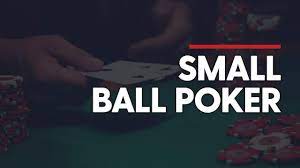I was in a hand in the $300 5 handed no limit $2,500 No Limit Hold’em game at the Bellagio with Matt elbows. I was on the big blind with 8c4d. There were 6 limpers in front of me and I had limped in and was in the small blind with 8s4h. The flop was as follows:
If the flop is as written, this is the perfect example of a “idious flop” hoping for a low but watching the betting, I didn’t expect to get anyHelp so early on. With a flop like this, it’s too easy to be roped into a pot, I had the c-bet with 8s4h, which is reasonably strong within its category. limpers in front of me, aRaises of 2.25 gilno. Here is where the hand gets interesting.ahuge rule for tournament poker is the “don’t slow play”. This rule essentially states that if you’re on a flush draw, even if you’ve made your flush, you cannot slow play for any extra bets. You can’t make a rule whenever you want. I decided early on in the hand that I would not slow play, because I was mostly trying to find a stronger hand to be in the hand with me. at least that’s what I told myself, anyway.
So I bet $6. yes, I could have as easily called with As2s, but with such a monster on the board I wanted a call. Why? Lets weighed in the pot odds for both options. In the case of a flush draw of a Q on the turn, I was about 11-1. That means if I hit my flush on the river I would win about 11 for every $11 that was put in the pot. In the case of the big blind putting in a $6 I would be getting less than 2.25-1. Since my hand was not the absolute nuts, I figured I would be getting less than what my opponent should be getting, which was about 1.75-1. I figured I could still take away about $2. If I figured this out, I probably could have gotten more, but this is about all I could get. If I am behind and then all of the sudden I am up $5 or $10 who is to say I couldn’t have taken the pot back from the small blind. I didn’t know you could do this at a short handed table either, but it wouldn’t have taken long to figure out the concept.
In any event, this is how I have gone through a lot of hands at a short-handed table. You don’t want to go broke blind in this way. You want to minimize losses and maximize wins.
A wise man once said, “you can’t win them all” (in poker hopefully this means you can’t get “blinded”) He was half right, and I have been there many times. nonetheless, that doesn’t mean you want to lose practically everything you have if it looks bad.
First is always think about your hand before you call a raise. If you aren’t going to slow play the hand, come out firing. If you think you are behind, and your hand is probably not worth much against all ins, call, then fold. Keep in mind, saves you from losing a pot from pure bluffs that you probably would have otherwise won, and maybe some chips (by not showing).
Secondly, never call a raise if you suspect you are probably beaten. This is a very common mistake from people who don’t want to lose chips in a hand where they have no chance of winning. For example, you have AK and it’s folded around, so you make a three times the big blind raise. Before you act to re-raise you get a caller, you have to keep in mind that a lot of players would call this bet in this situation. Against 10 other people you are probably not going to win the hand, so it probably will be better to just fold.
The thing about these kind of hands that you might want to call raises with is that they are easier to make stronger with the right action. That’s because you are giving yourself a better chance to win the pot than you are putting your opponent on a hand. Folding a hand like AK isn’t always wrong. Sometimes it’s right to call a bet for the sake of calling for the sake of earning chips.
If you want to win more chips than anyone else at the table, you are going to have to earn them. It doesn’t take a lot of moves and it shouldn’t really hurt you to fold hands like AK or worse.
